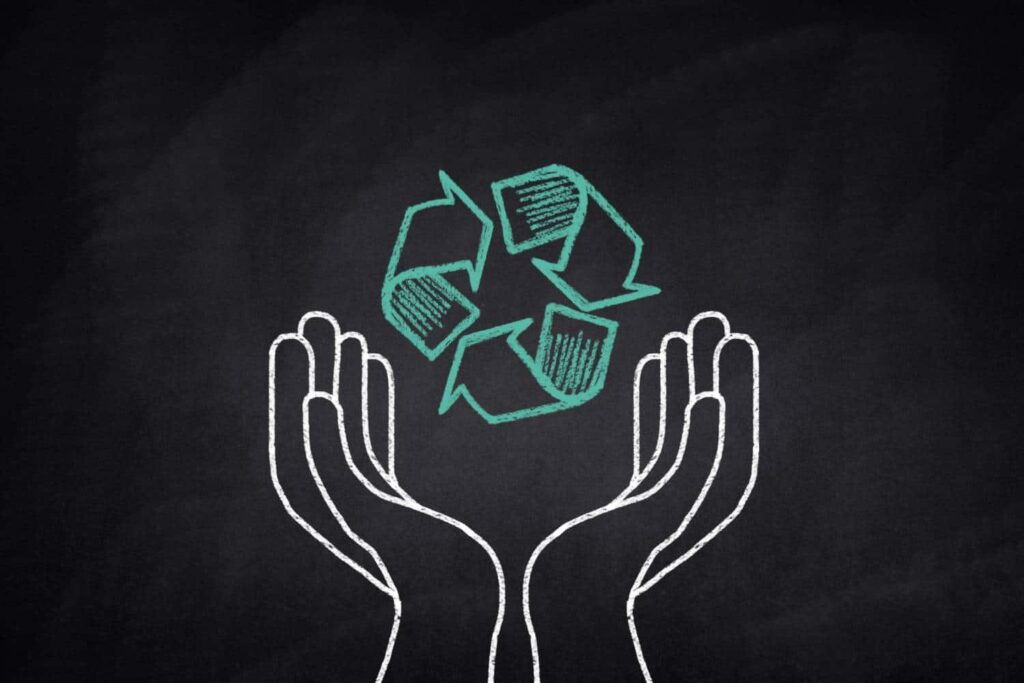
You’ll be surprised to learn that recyclable waste makes up 60% of all business waste. Unfortunately, though, a lot of this waste is disposed of improperly and ends in landfill, rather than being recycled. As a result, we are seeing more and more of our precious landfill space being consumed by recyclable waste and, therefore, increased methane production and other harmful greenhouse gases.
Thankfully, it seems that many Australian businesses are trying their best to combat this cycle by adopting measures to get their business waste recycled.
If you haven’t taken measures to recycle your business waste, you must start doing it proactively. Apart from the environmental benefits, your business will also earn a reputation for being sustainable and ethical.
So, continue reading this post as I explain the environmental benefits of recycling some common types of business waste. Hopefully, after you read through, you’ll realise the importance of properly disposing of your business waste and using a Brisbane skip bin hire service.
Note: To help you understand things better, we have made conversions to the environmental benefits. Greenhouse benefits are converted to the number of kilometres driven by an average car. Energy savings are converted to the average household electricity requirements every month. Water savings are converted to an average-sized bath tub filled with water. Landfill space savings are converted to average-sized wheelie bins filled with solid waste.
Table of Contents
Office paper, paper and cardboard
Office paper, paper and cardboard are probably the most common of workplace waste materials – all of which can easily be recycled. Recycling these materials consumes 90% less water and 50% less energy than manufacturing them.
Thankfully, recycling of office paper, paper and cardboard is very common in Australian workplaces.
The environmental benefits of recycling one tonne of office paper are as follows:
- Greenhouse benefits: Equivalent to diving 3,243km.
- Energy savings: Equivalent to the energy use of 1.5 houses for a month.
- Water savings: Equivalent to 2 bathtubs.
- Landfill space savings: Equivalent to 17 wheelie bins.
The environmental benefits of recycling one tonne of paper and cardboard are as follows:
- Greenhouse benefits: Equivalent to diving 3,713km.
- Energy savings: Equivalent to the energy use of 4 houses for a month.
- Water savings: Equivalent to 111 bath tubs.
- Landfill space savings: Equivalent to 14 wheelie bins.
Plastics
Today, most plastics can be recycled. Recycling of plastic dramatically reduces the need for oil, which is otherwise required in the manufacturing process. Make sure to dispose of your plastic waste properly else it will end up in landfills.
The environmental benefits of recycling one tonne of plastic are as follows:
- Greenhouse benefits: Equivalent to diving 5,894km.
- Energy savings: Equivalent to the energy use of 31 houses for a month.
- Water savings: Equivalent to 31 bath tubs.
- Landfill space savings: Equivalent to 32 wheelie bins.
Metals and scrap aluminium
Metals and scrap aluminium can easily be recycled. Recycling of these materials consumes less water and energy and reduces emissions as compared to manufacturing them. Most businesses in Australia recycle their metal and scrap aluminium waste.
The environmental benefits of recycling one tonne of metal are as follows:
- Greenhouse benefits: Equivalent to diving 8,016km.
- Energy savings: Equivalent to the energy use of 11 houses for a month.
- Water savings: Equivalent to 55 bath tubs.
- Landfill space savings: Equivalent to 37 wheelie bins.
The environmental benefits of recycling one tonne of scrap aluminium are as follows:
- Greenhouse benefits: Equivalent to diving 85,770km.
- Energy savings: Equivalent to the energy use of 106 houses for a month.
- Water savings: Equivalent to 1,154 bath tubs.
- Landfill space savings: Equivalent to 28 wheelie bins.
If your business produces many of these waste materials, consider contracting a Brisbane skip bin hire service. At 4 Waste Walk-In Skip Bins, we offer Brisbane skip bin hire at the cheapest prices in the city.
We accept all types of common business waste, including paper, plastics and metals. Hire one of our skip bins to ensure that your business waste reaches recycling depots, not landfills.
Lean more about our skip bin hire service in Brisbane.
Conclusion:
There are many environmental benefits to recycling business waste. These include greenhouse, energy, water, and landfill space savings. Common types of business waste can be recycled, such as office paper, paper and cardboard, plastics, metals and scrap aluminium. The easiest and most efficient way of recycling this waste is through a Brisbane skip bin hire.
For reliable and affordable Brisbane skip bin hire services, choose 4 Waste Walk-In Skip Bins.

